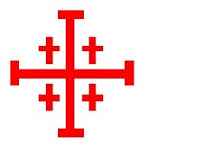Heavenly
Father: Over the years I have often said, “I am an Anglican first, and an
Episcopalian second.” That declaration
and awareness has comforted me in the past, but what if the Anglican Communion
itself is torn asunder? I am saddened,
but not shaken by the prospect, because the fact is that my roots are sunk even
deeper than the few centuries of our specific Anglican history.
I
am on the Canterbury Trail to the defaced shrine of the Holy Martyr Thomas á
Becket. Well he understood the problems
of royal privilege and its potential for contaminating the Church in
England. As an old colonial boy I find
it frustrating that the royals and parliament have so much say in the life of
the Church, but you know I love the pomp and ceremony, the skirl of pipes and
the rumble of drums
My
roots reach back through the long history of the English Church, through
Milton, and through Blake who prayed, “And did the Countenance Divine Shine
forth upon our clouded hills? And was
Jerusalem builded here Among these dark Satanic Mills?” Through John Jewel and “ the Coming Down of
the Holy Ghost and the Manifold Gifts Thereof,”
through Cranmer and the Book of Common Prayer, through Julian of Norwich
and Margery Kempe, through Walter Hilton and Richard Rolle, through blesséd
Anselm who teaches me that the strength of my salvation is the strength of
Christ.
My
roots reach further back through Augustine of Canterbury, through Saint
Benedict and the ancient Monks of Nursia, through Antony of the Desert and the
wild-eyed desert hermits. My roots reach
back through Canterbury, past Roman paving stones to ancient Celts and Britons
by their smoky fires smouldering in the damp of an English spring.
My
roots reach even further back through wandering missionaries, Christian
tradesmen, and Roman soldiers who bearing the cross on their hearts first tread
upon the soil of the land of my forefathers.
My
roots reach even further back through the long and dreadful glorious history of
the martyrs of the early church, through the letters and missions of Paul and
Peter, Jude and James and John and all the Gospellers now radiant in
glory. “So then you are no longer
strangers and aliens, but you are fellow citizens with the saints and members
of the household of God, built upon the foundation of the Apostles and
prophets, Christ Jesus himself being the cornerstone, in whom the whole
structure, being joined together, grows into a holy temple in the Lord. In him you also are being built together into
a dwelling place for God by the Spirit” (Ephesians 2:19-20).
It
is actually that last declaration that binds together the whole of this
tumultuous history of the Church catholic and militant that I have loved, and
still love with every fibre of my being.
My Father it is immersion in your Spirit, poured out upon the Church
through the hands of Jesus our Head that makes sense of the whole. It is one of your miracles that the Church in
all its brokenness over the centuries still survives.
Time
and time and time again you gather the broken shards together and craft again a
golden vessel for honorable use, set apart as holy, useful to the Master of the
house, ready for every good work (2 Timothy 2:21). I find that instead of grieving or
despairing, I am excited by the shaking of the foundations of our beloved
Anglican Communion. When “the golden
bowl is broken, or the pitcher is shattered at the well” (Ecclesiastes 12:6),
nothing less than your holy hands are at work.
My Lord, let me see! Show me the
new golden vessel as it rises like the Phoenix from the ashes. Break us, mold us, make us, fill us again
most glorious Lord and Father. We are
yours, through Jesus Christ our Lord. Amen.














